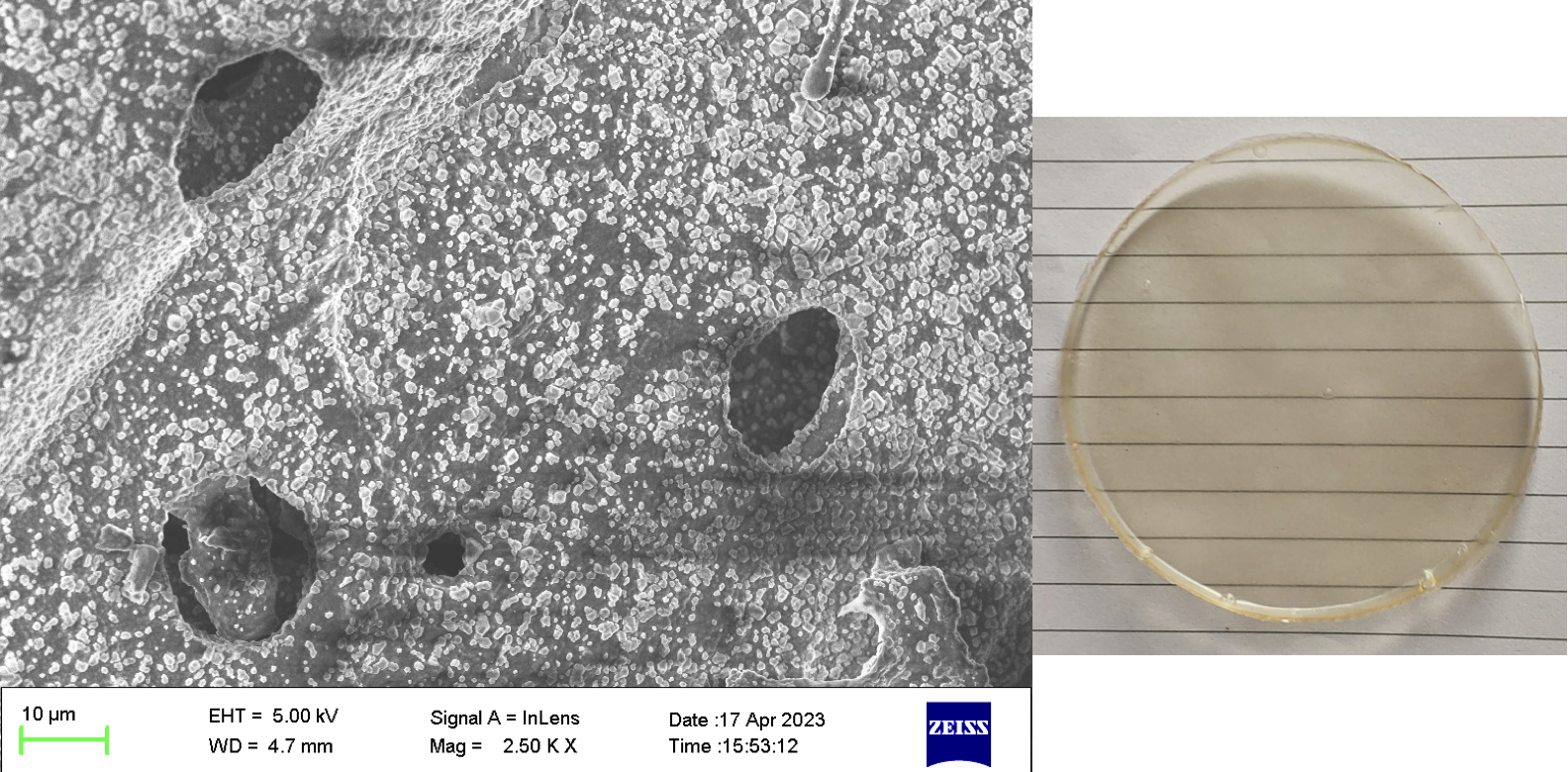 byFrijo Johnsonof
byFrijo Johnsonof Davinci's Men of Accubits
Davinci's Men of Accubits
Explore our evergrowing product portfolio and our speciality synthesis. For more information and prices reach out to us at services.invent@accubits.com
Zinc stannate (ZnSnO3), or zinc tin oxide (ZTO), is a ternary oxide,having high electron mobility and stability in extreme temperatures. With a face-centered perovskite structure (ABO3), it's inherently ferroelectric.
Applications: Gas sensing, Catalysis, Energy storage etc...
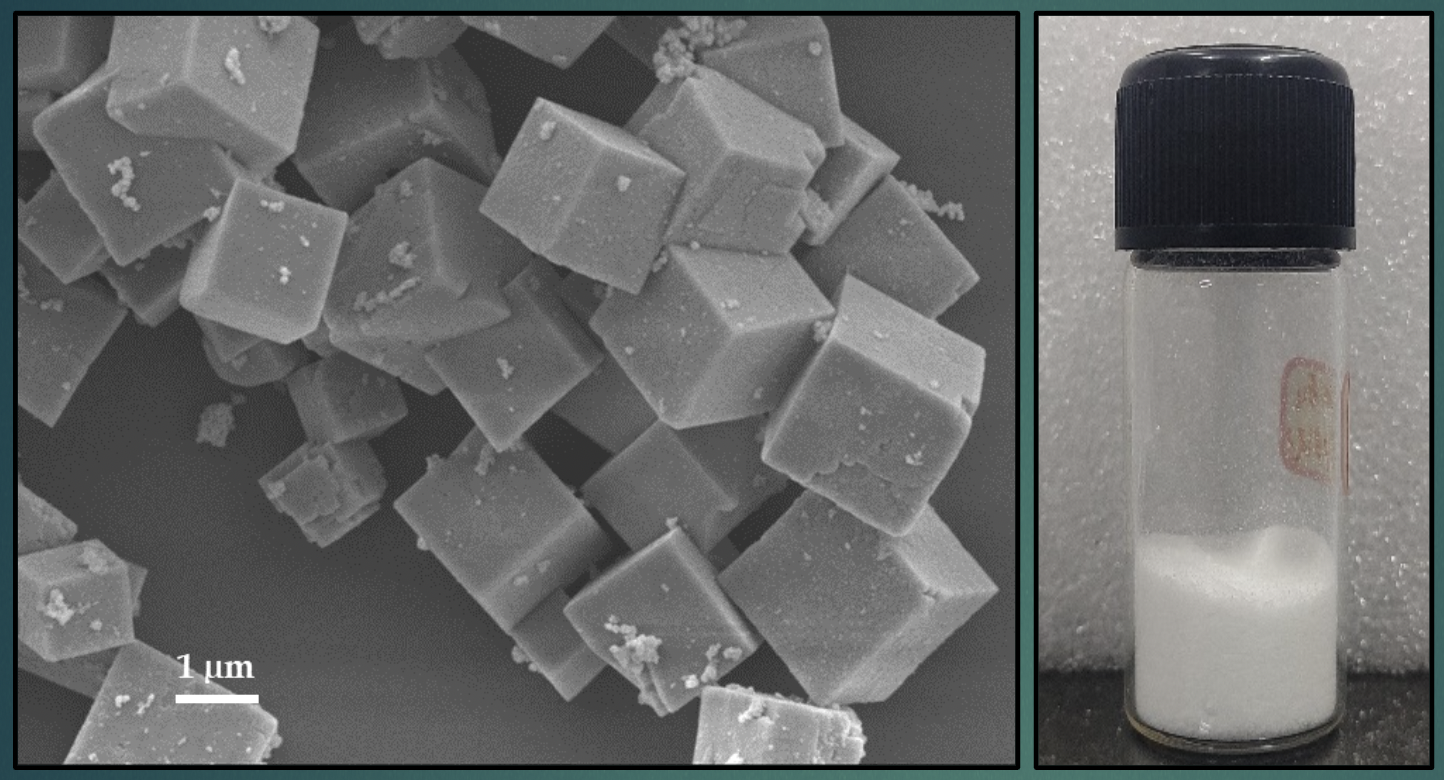
Hematite Fe2O3 stands out as a semiconductor magnetic nanoparticle, displaying paramagnetic traits and chemical resilience. The hierarchical nanostructures, characterized by distinctive dendritic morphology, offer expansive surface areas, unlocking their potential for versatile heterostructure applications.
Applications: Gas sensing, Catalysis, Energy storage, Magnetic Data storage etc...

Colloidal gold nanoparticles, spanning 20 to 60 nanometers, exhibit remarkable properties and find diverse applications. Tailorable in size and shape, they showcase captivating optical features. In medicine, they function as biocompatible contrast agents, drug carriers, and diagnostic tools. Their catalytic prowess propels advancements in chemistry, while in Surface-Enhanced Raman Spectroscopy (SERS), they amplify signal strength for precise molecule detection. From flexible electronics to nanoscale devices, these nanoparticles revolutionize materials science.
Applications: Cancer detection, Biosensors, Catalysis, SERS etc...
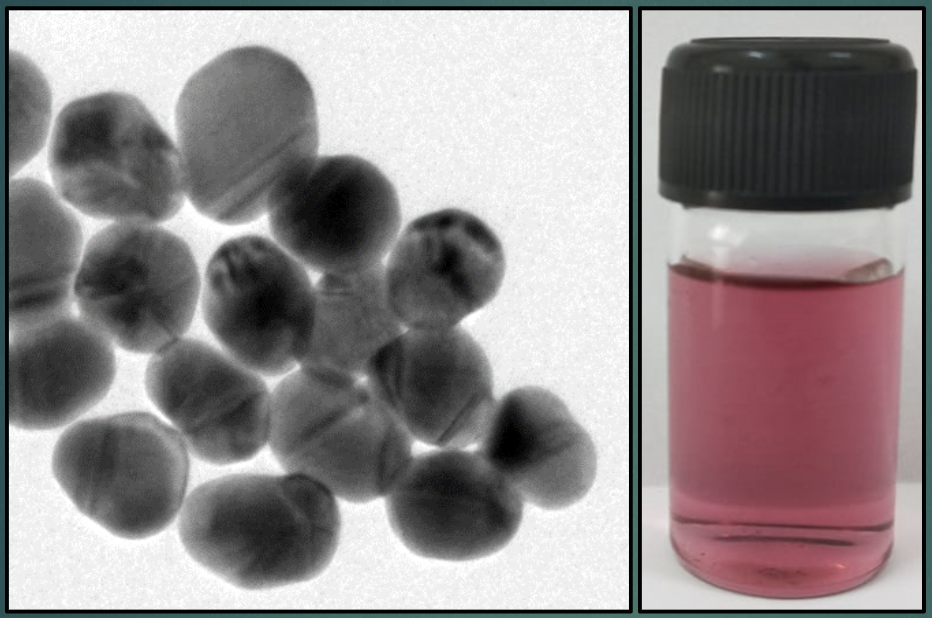
Zinc oxide nanorods (ZnO nanorods) represent a distinctive nanostructure with rod-like morphology composed of zinc and oxygen. Ranging in size from nanometers to micrometers, these structures exhibit exceptional semiconducting properties, high surface area, and unique optical characteristics. They have multiple applications in various domains due to their tunable dimensions and desirable electronic properties. Their versatility and potential for tailored applications underscore their significance in advancing nanotechnology and materials science.
Applications: Sensors, Catalysis, Photo detectors, Solar cells, Energy storage etc...
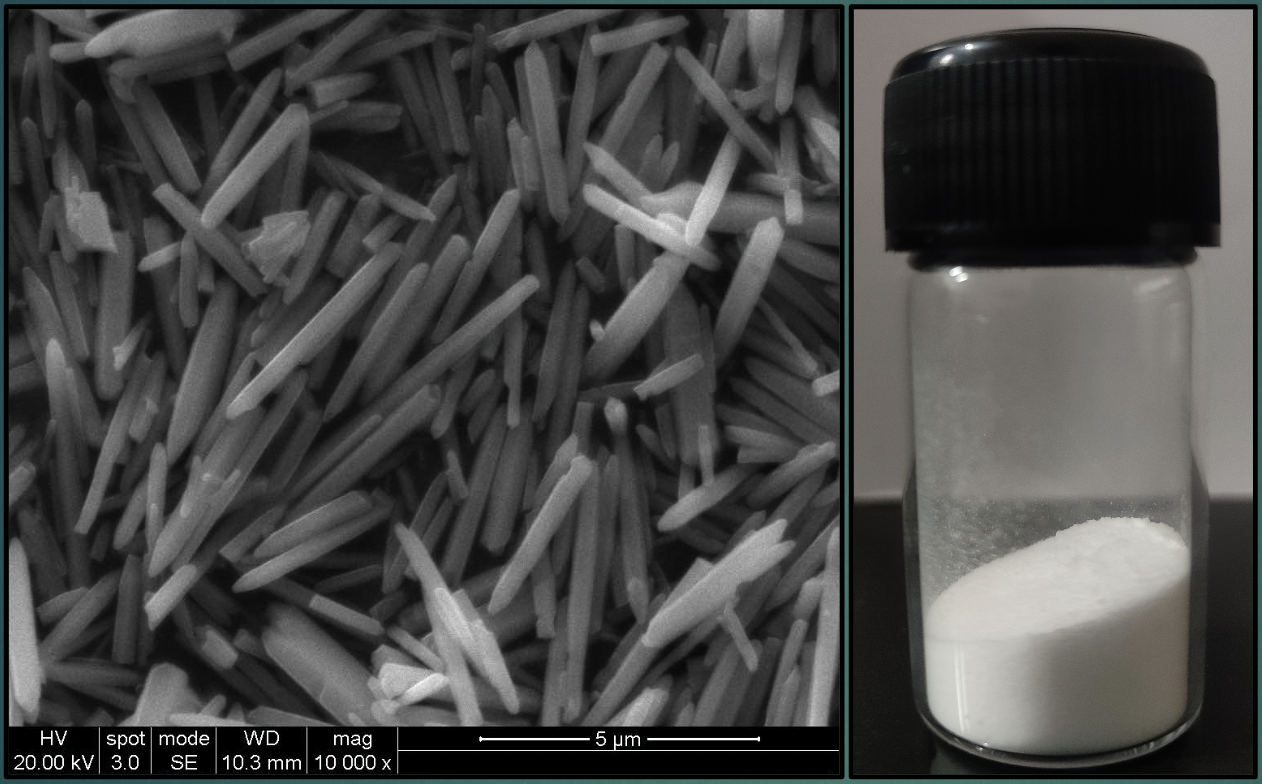
Gold nanorods are nano-sized particles made of gold with elongated shapes, resembling tiny rods. These structures exhibit unique optical and electronic properties due to their size and shape. The aspect ratio of gold nanorods allows them to absorb and scatter light at specific wavelengths, particularly in the near-infrared region. The tunable optical properties and biocompatibility of gold nanorods make them a promising material for advancements in nanotechnology and biomedical research.
Applications: Photothermal therapy, Drug delivery vehicles, Catalysis, SERS etc...
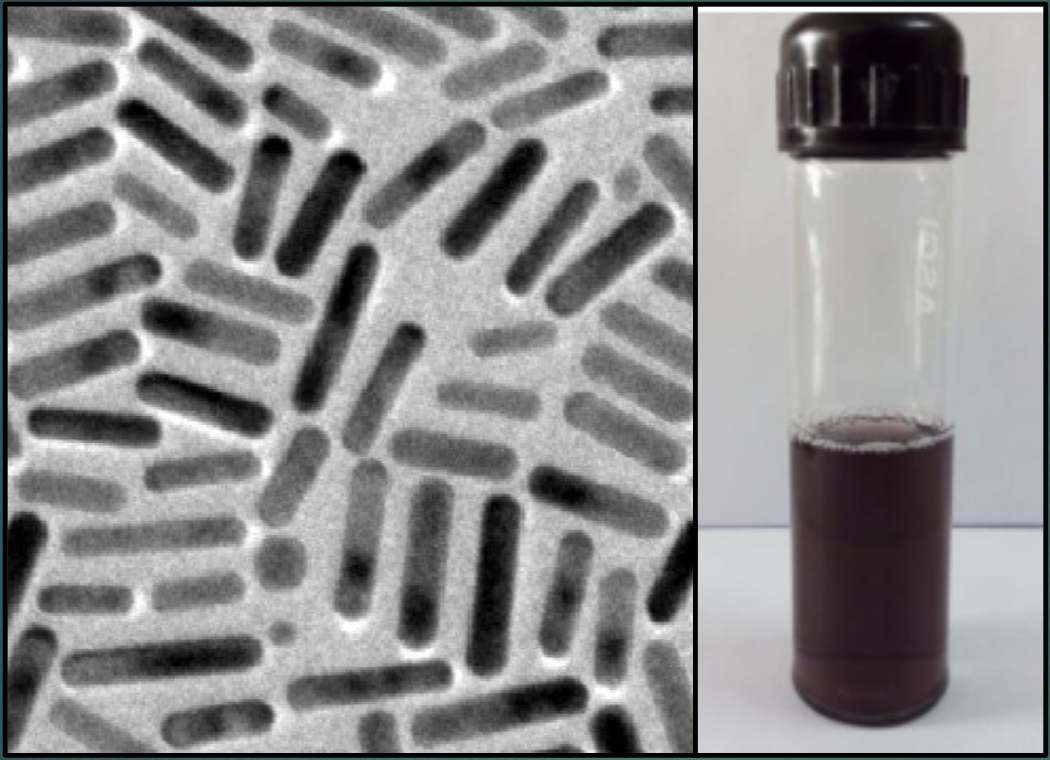
Superparamagnetic iron oxide nanoparticles (SPIONs) [Fe3O4] exhibit strong magnetic responses in the presence of an external magnetic field, allowing for precise manipulation. The size and surface characteristics of SPIONs can be adjusted, influencing their magnetic behavior and biological interactions. Their tunable size and surface characteristics allow tailored applications, while inherent biocompatibility ensures suitability for diverse biomedical uses. Stability in various environments enhances their reliability.
Applications: Biomedical Imaging, Drug Deliviery, Cancer therapy, Biosensors, Environmental remediation etc...
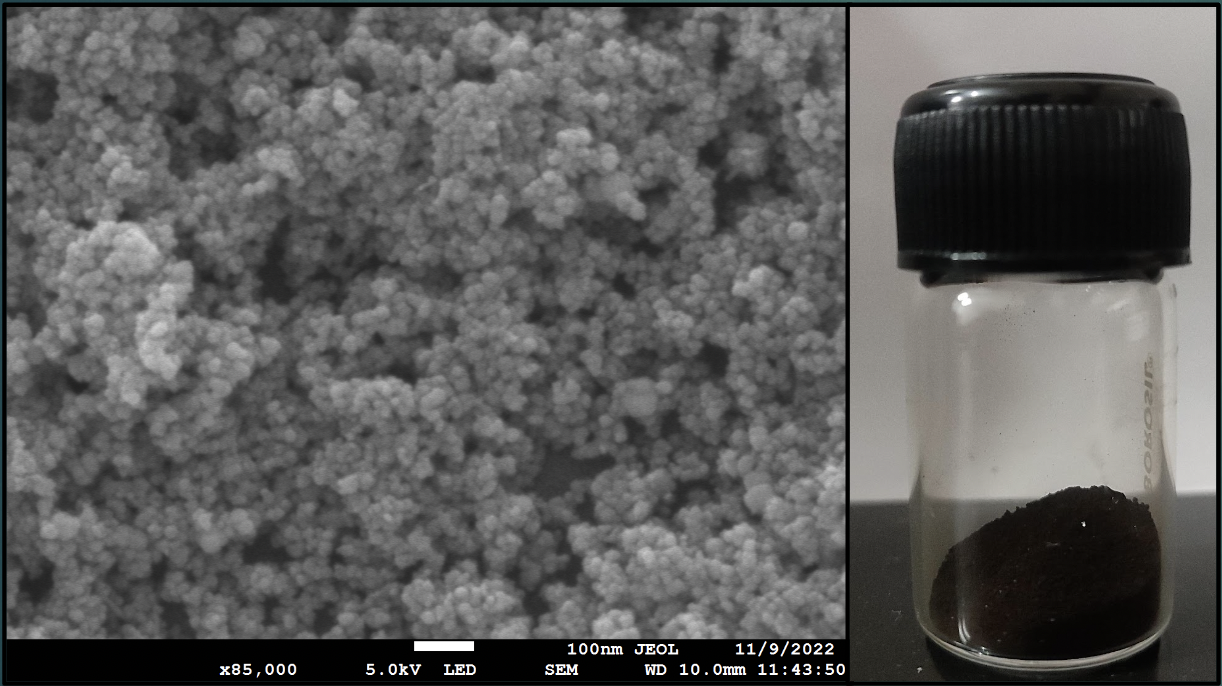
Molybdenum disulfide (MoS2) nanoparticles exhibit a layered structure with semiconducting behavior, rendering them versatile in nanoelectronics and composite materials. Their tunable bandgap, dependent on the number of layers, makes MoS2 suitable for electronic devices. Additionally, these nanoparticles demonstrate catalytic activity, particularly in hydrogen evolution reactions, pivotal for energy conversion technologies. Their lubricating properties further enhance applications in coatings and lubricants, showcasing their multifaceted utility.
Applications: Nano-electronics, Catalysis, Water splitting, Energy storage, Rheology etc...
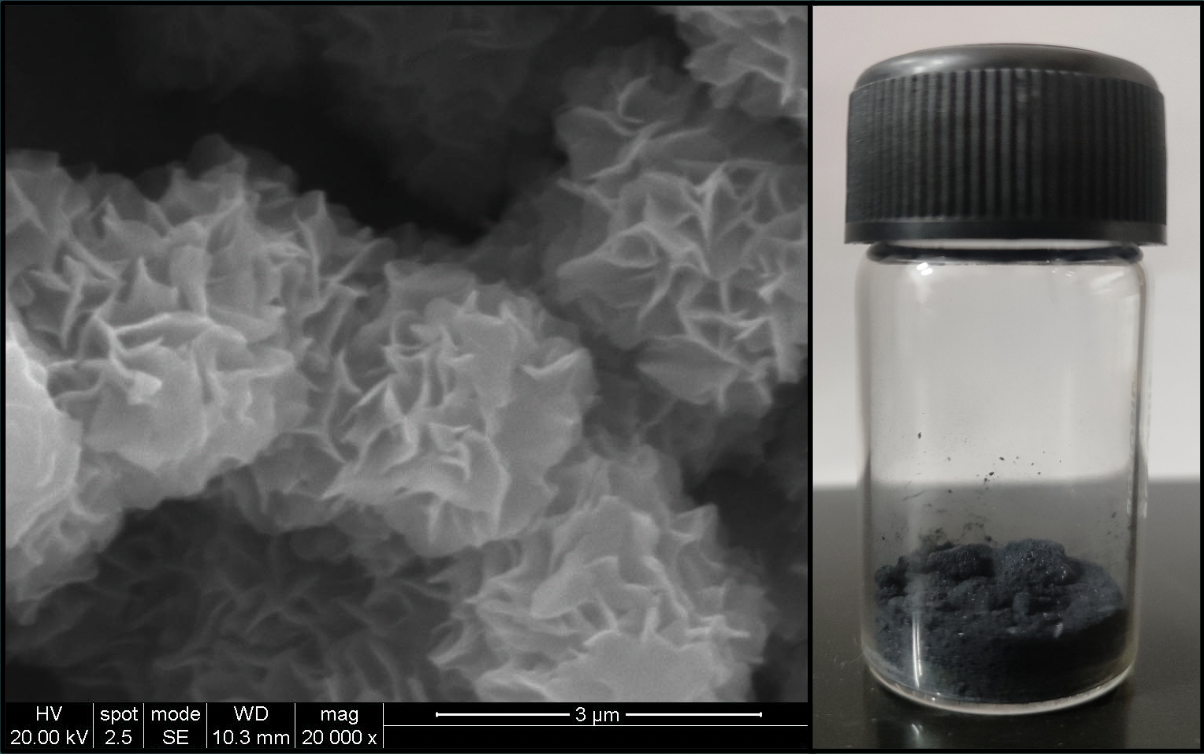
Nano activated carbon, a refined form of activated carbon at the nanoscale, boasts enhanced surface area and reactivity. Crucial for water and air purification, energy storage, and catalysis, its versatility addresses environmental and technological challenges. This nanomaterial represents a pivotal advancement, offering innovative solutions with profound implications across diverse industries.
Applications: Air purification, Water purification, Sensors, Energy storage etc...
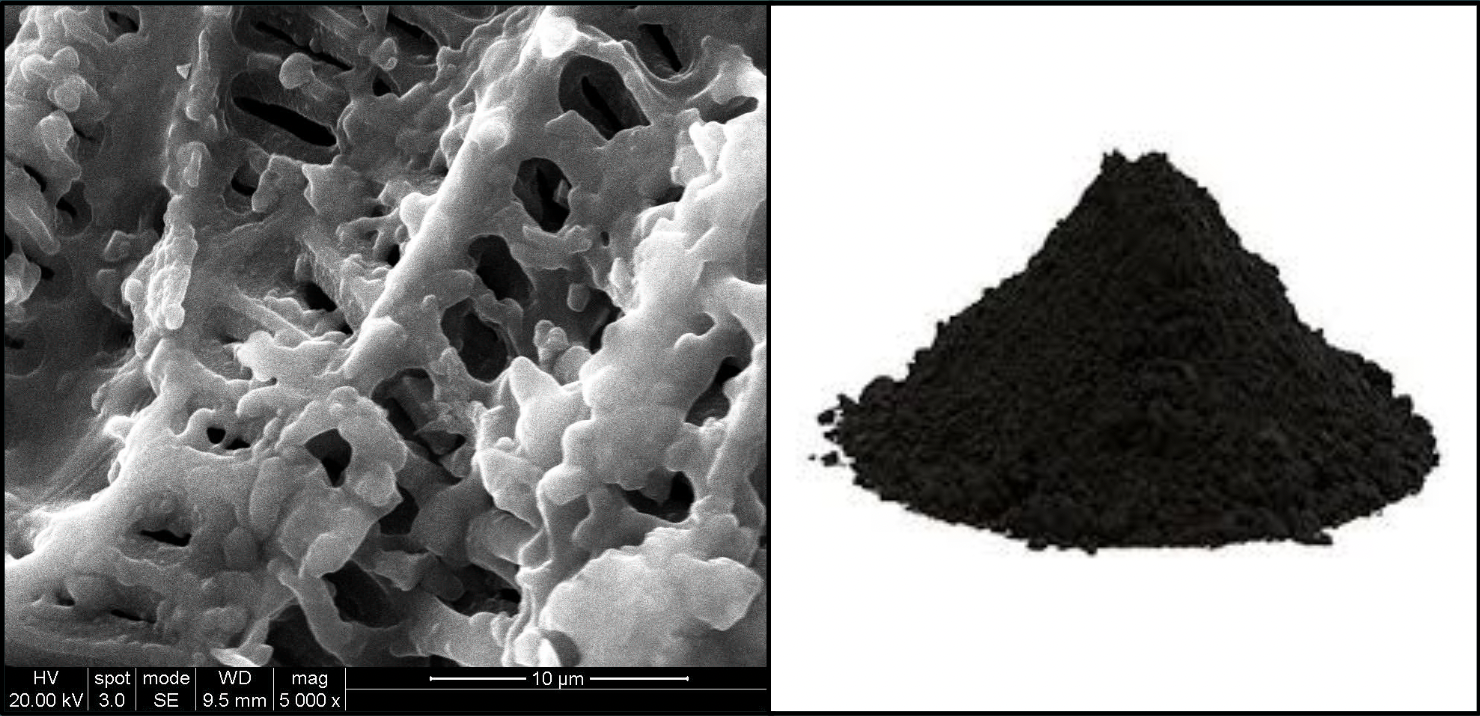
Polyaniline (PANI) nanoparticles, showcase exceptional conductivity and unique properties at the nanoscale (1-100 nanometers). Ongoing research explores their potential, positioning polyaniline nanoparticles as a forefront in nanomaterials with far-reaching impacts across industries, from flexible electronics to advanced medical devices.
Applications: Sensors, Electronics, Drug delivery systems, Energy storage etc...
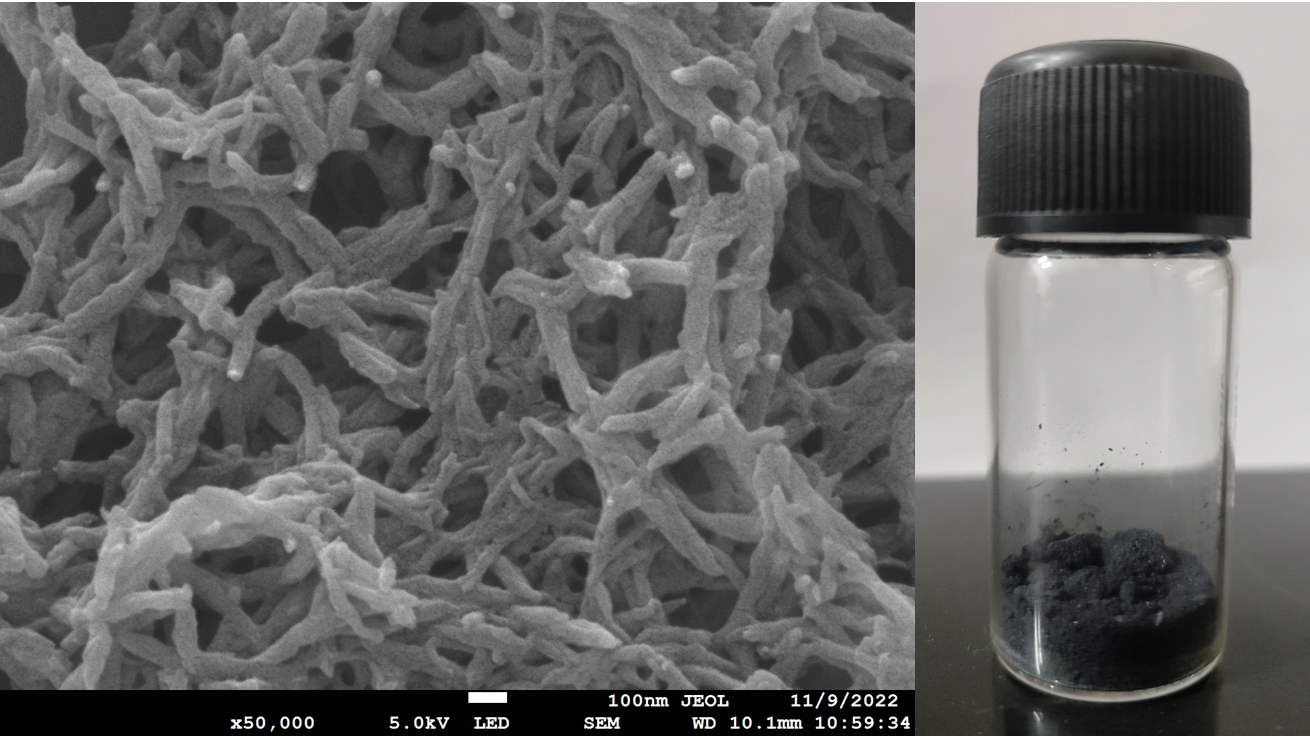
Silver nano prisms showcase unique properties such as plasmonic resonance, heightened light scattering, and tunable optics. They excel in sensitive sensing and catalysis. Their intrinsic conductivity is leveraged for electronics, especially in crafting transparent and flexible conductive films.
Applications: SERS, Imaging, Sensors, Therapeutics etc...
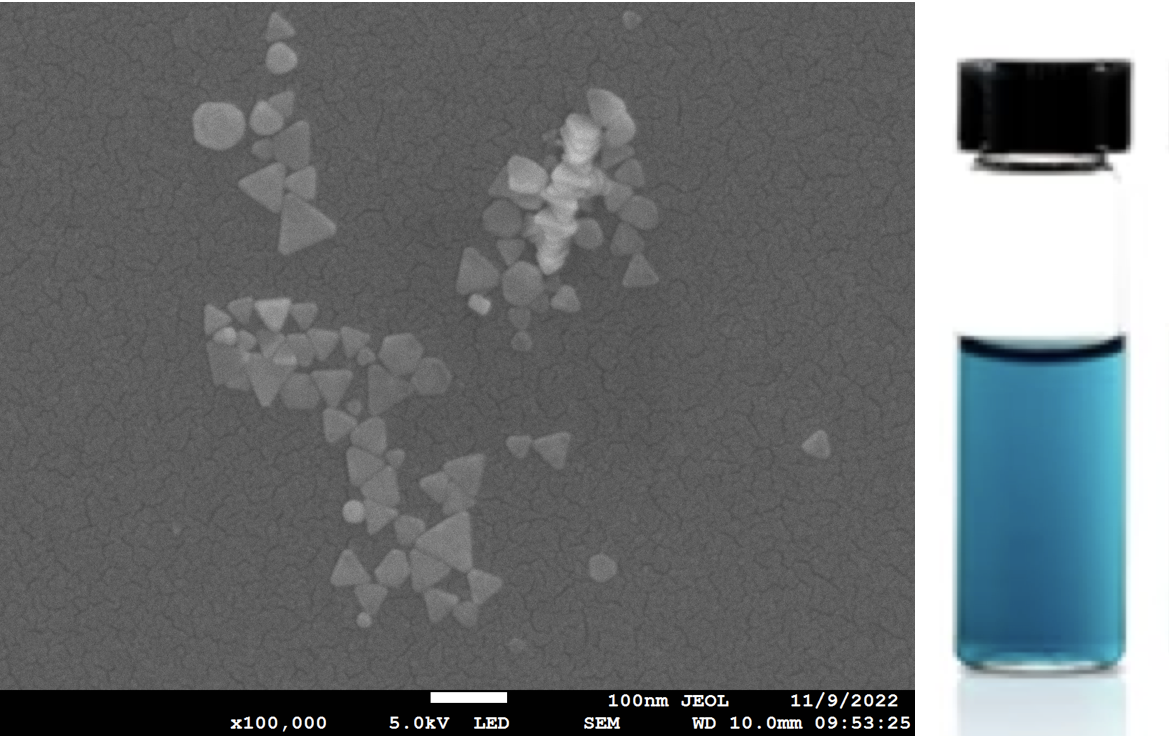
Silica nanoparticles are characterized by their monodispersity and mesoporous nature. Monodispersity ensures uniform particle size distribution. Their mesoporous structure, with regularly spaced pores, contributes to an exceptional surface area, amplifying adsorption capacity and reactivity.
Applications: Catalysis, Sensors, Drug delivery systems, Imaging etc...
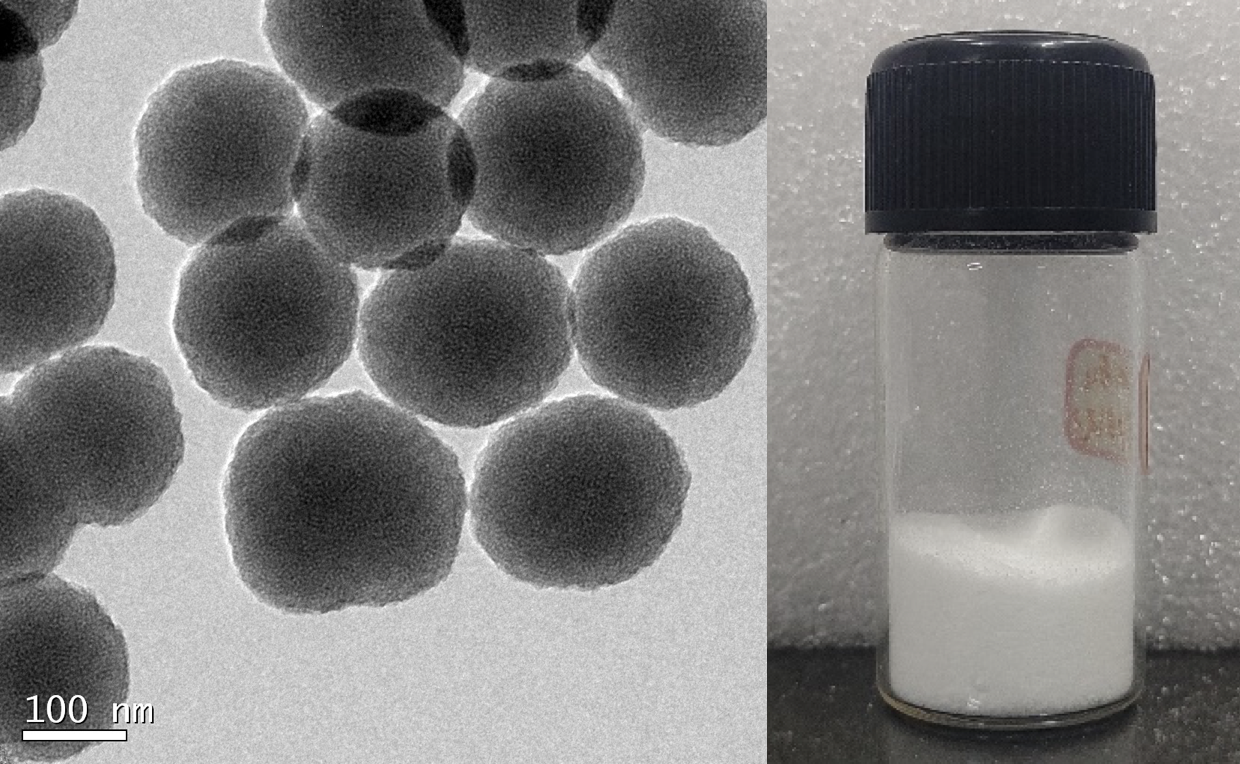
CMC hydrogels are made from carboxymethyl cellulose, a water-soluble cellulose derivative. They have high water absorption, good biocompatibility and biodegradability, easy modification and functionalization, and stimuli responsive behavior (pH, Temp, etc.).
Applications: Moisture management, Wound healing, Drug delivery, Biosensing, Actuation etc...
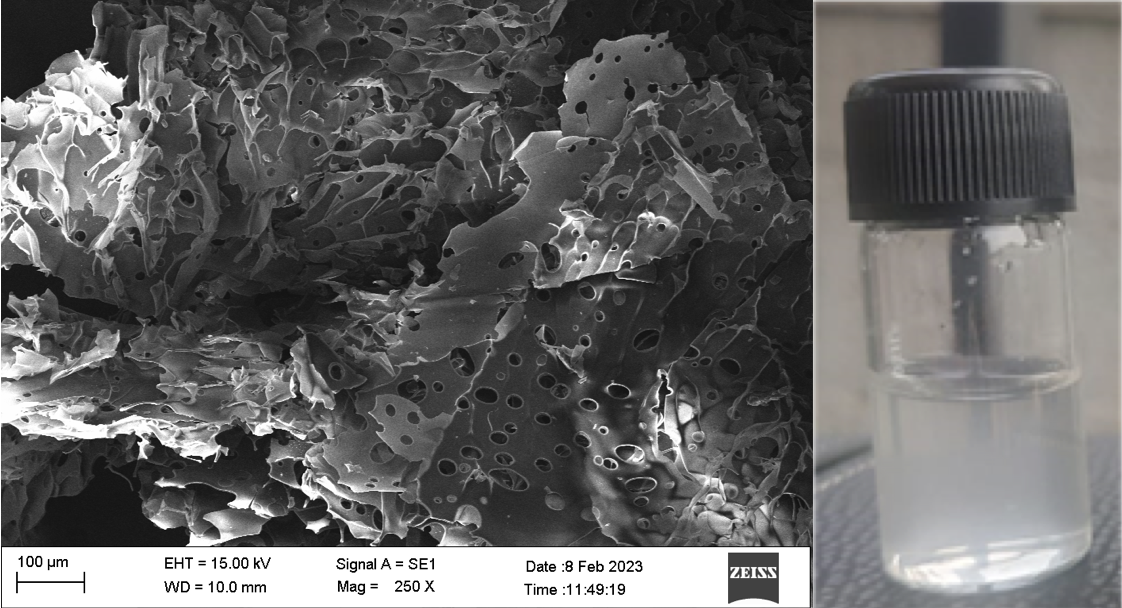
Alginate hydrogel, derived from brown seaweed, is a biocompatible biomaterial known for its unique structure. Formed through cross-linking with divalent cations, it creates a flexible and hydrated matrix with excellent water retention.
Applications: Wound healing, Drug delivery, Tissue Engineering, Encapsulation etc...
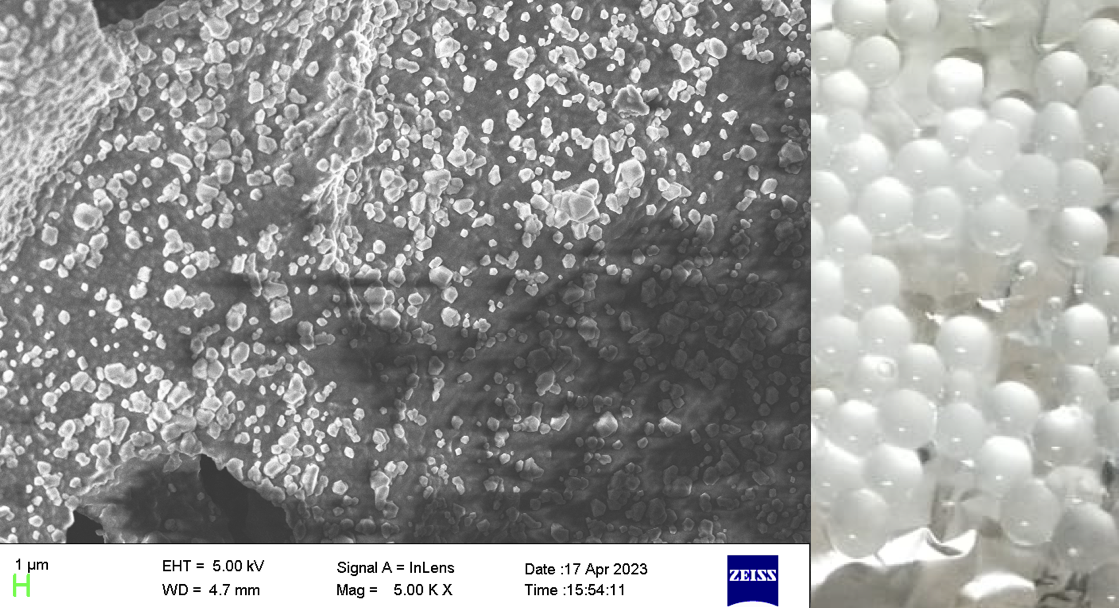
Hollow gold nanoparticles (HGNs) are precisely engineered structures achieved through sacrificial galvanic replacement of cobalt nanoparticles. Offering tunable interior and exterior diameters, their surface plasmon band absorption can be finely adjusted between 550 and 820 nm by controlling particle size and wall thickness.
Applications: Chemical and Biological sensing applications, Drug delivery, Photo-thermal Therapy etc...
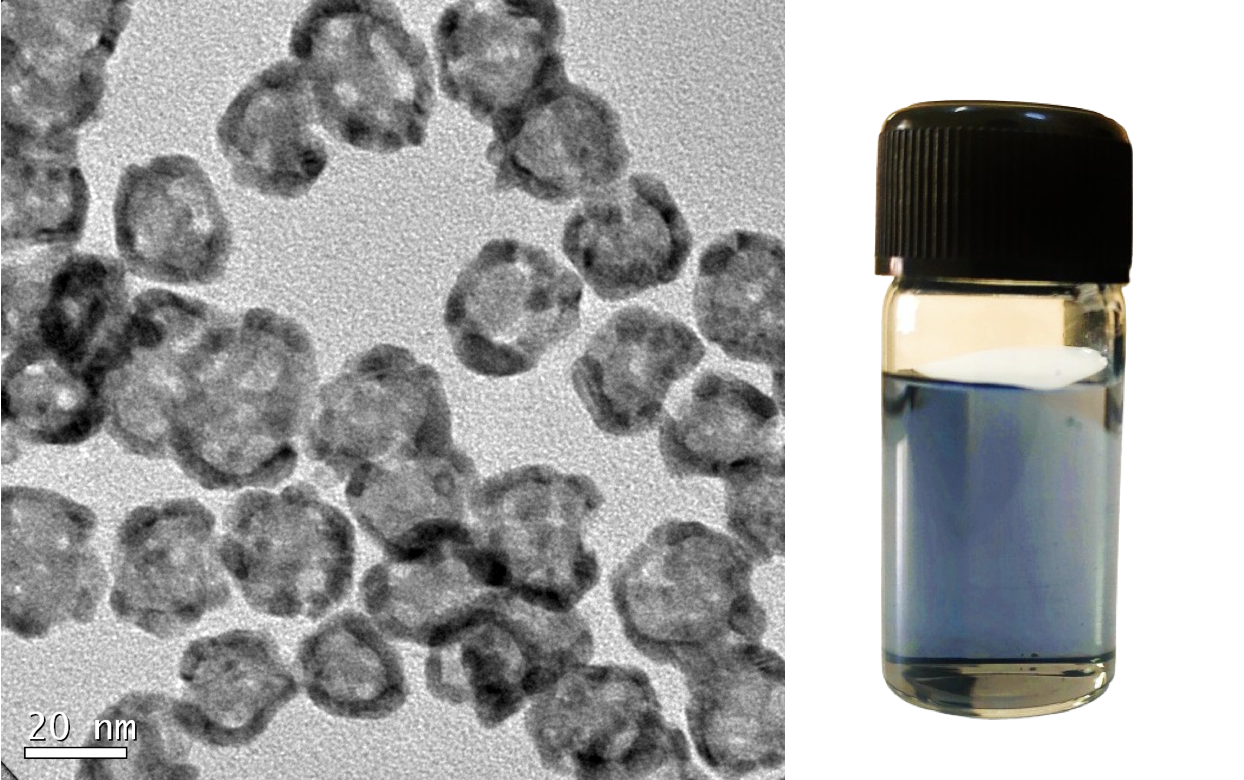
Derived from natural water-soluble polysaccharides, this hydrogel harnesses the unique properties of sodium alginate sourced from marine algae. With exceptional water-holding capacity, biodegradability, and non-toxicity.
Applications: Wound Dressing, Drug delivery, Tissue Engineering etc...
